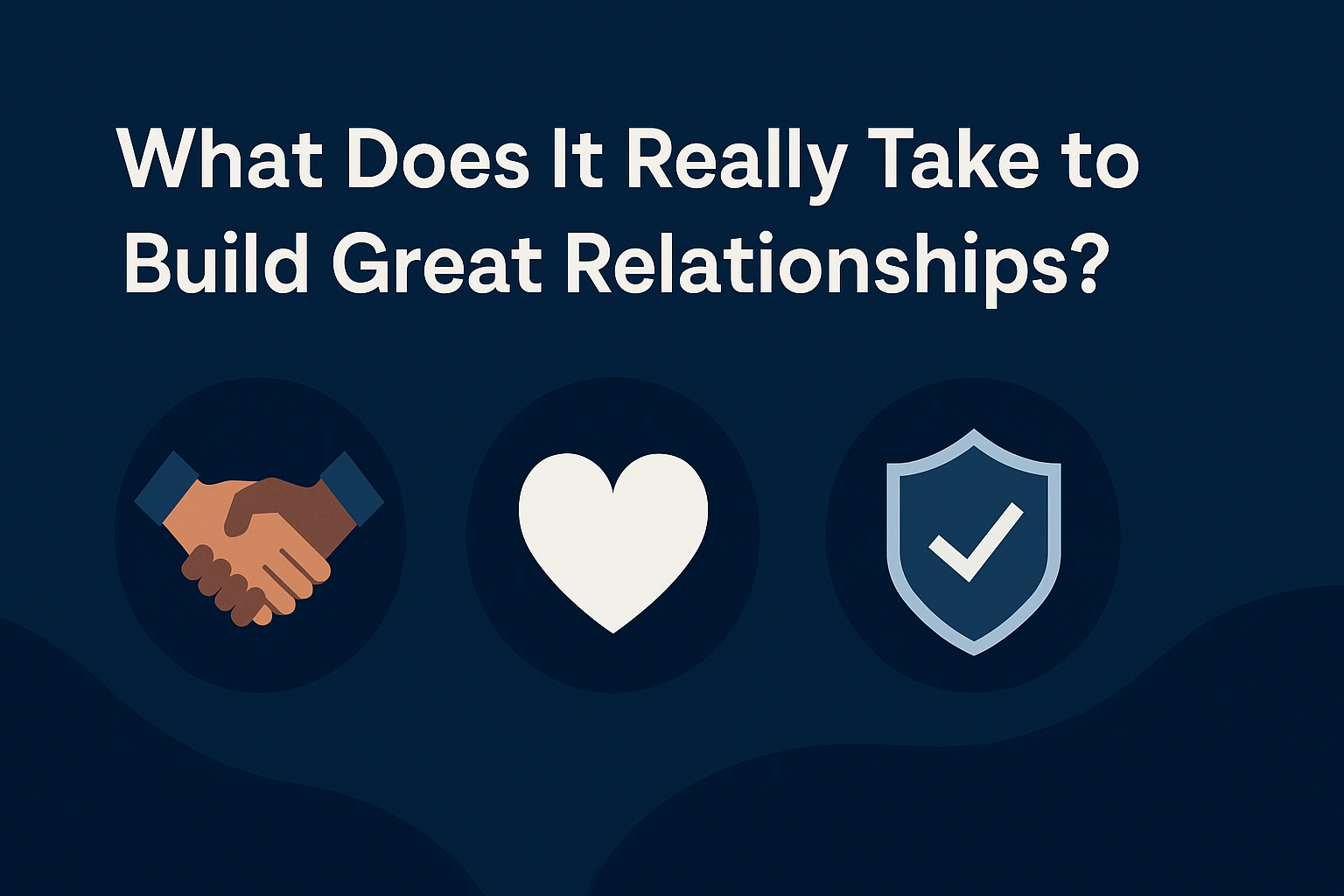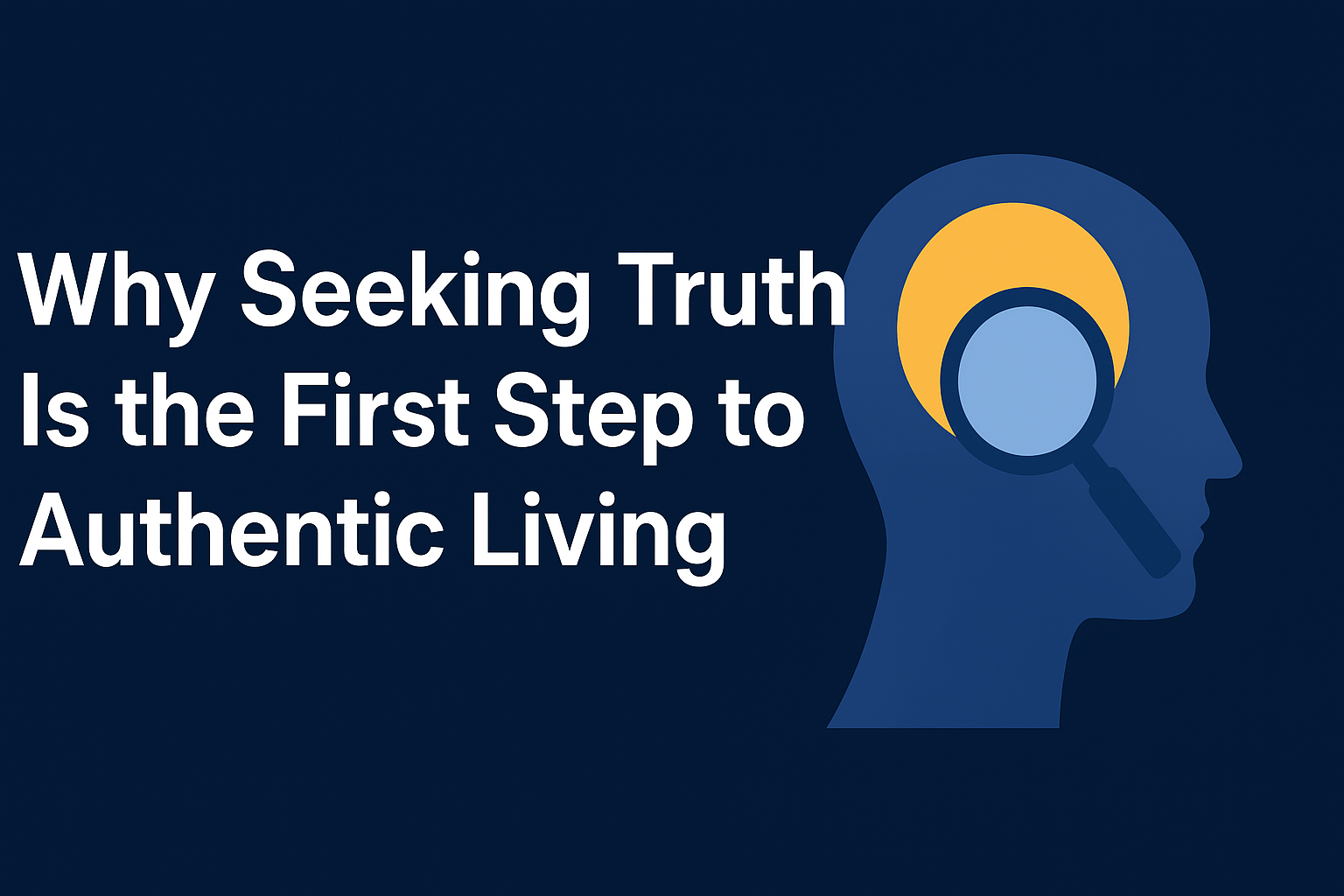We’ve all heard that success in life isn’t just about what you know, but also who you know. But here’s the thing: “knowing people” is different from building great relationships that actually last. Whether we’re talking about friendships, family, or professional connections, the same question keeps coming up: what does it take to build great relationships?
The answer isn’t complicated, but it does require intentional effort. Let’s break it down into principles, habits, and a few personal lessons that might just shift the way you approach your connections.
Why Great Relationships Matter
Think about the people in your life who push you forward. Maybe it’s a friend who always tells you the truth (even when it stings), a mentor who opened a door you didn’t even know existed, or a family member who reminds you of your worth when you’ve forgotten it yourself.
The longest-running Harvard Study of Adult Development followed people for over 80 years and found that the quality of relationships was the strongest predictor of happiness and health—even more than wealth or career success (Harvard Gazette, 2017). That means great relationships don’t just feel good; they literally shape how long and how well we live.
On a personal note, one of my biggest business breakthroughs didn’t come from a strategy session or a course—it came from a single phone call with someone I had built trust with over the years. That relationship doubled my opportunities almost overnight.
The Core Principles of Building Great Relationships
So, what does it really take to create these bonds? Let’s look at the fundamentals.
Trust — The Non-Negotiable Foundation
If you don’t have trust, you don’t have much. Trust is built through consistency: doing what you say you’ll do, keeping promises, and being reliable when others count on you.
I once had managers who would always “forget” deadlines. Over time, it didn’t matter how charismatic or smart they were—their lack of follow-through eroded the relationship completely. In contrast, the people I trust most are the ones I know will show up when they say they will. Competency and skill will never outweigh character and trustworthiness.
Active Listening — More Than Just Hearing
Listening is one of the most underrated relationship skills. Most people are just waiting for their turn to talk. Active listening means being present, asking follow-up questions, and making people feel heard. Listening with the intent to understand the other person, not for them just to understand you.
Try this small exercise: next time someone is sharing something important, repeat back what you heard before giving your opinion. A simple, “So what I hear you saying is…” makes people feel truly valued. Also seek to be truly interested in the other person. To make great connections, you don’t have to be the most interesting; you just have to be the most interested.
Empathy and Understanding
Empathy is the ability to step into someone else’s shoes, even if you don’t fully agree with them. Great leaders and great friends share this trait.
For example, during a workplace conflict I once faced, it was easy to get defensive. But when I slowed down and asked, “What pressure are they under right now?” the conversation turned from combative to cooperative. That single moment of empathy kept the relationship intact.
Consistency and Reliability
Relationships thrive when people know what to expect from you. Showing up consistently—in tone, in effort, in attitude—gives others a sense of safety.
Think about the friend who only calls when they need something. Compare that with the one who checks in regularly, even when they don’t “need” anything. Which one feels like a great relationship?
Respecting Boundaries
Boundaries aren’t walls; they’re guidelines for healthy connection. Respecting time, space, and differences in opinion shows maturity.
In fact, studies show that teams that set and respect boundaries perform better than those who blur them (Harvard Business Review, 2019). Whether in friendships or business, respect always fuels growth.
Habits That Strengthen Relationships Daily
Knowing the principles is one thing—living them daily is another. Here are small habits that build great relationships over time.
Small Acts of Kindness Go a Long Way
It doesn’t take much: a quick “thinking of you” text, remembering someone’s favorite coffee order, or celebrating their wins without being asked. These tiny gestures compound.
Quality Over Quantity in Communication
You don’t need to text someone all day to stay close. What matters is the depth of your conversations. Five minutes of genuine connection beats an hour of distracted chatter.
Apologize and Forgive Quickly
Conflict is inevitable. The difference between fragile and strong relationships lies in how fast we repair. Saying, “I was wrong” or “I forgive you” can reset a connection before resentment builds.
Common Mistakes That Break Relationships
It’s not just about what to do—it’s also about what not to do. Here are a few relationship killers to watch out for:
- Ignoring people when they’re speaking (nothing communicates disrespect faster).
- Taking more than you give (relationships are a two-way street).
- Failing to follow through on promises (the quickest way to lose trust).
Applying This in Different Areas of Life
The beauty of these principles is that they apply everywhere.
Personal Relationships
With friends and family, these skills build intimacy and trust. Simple things like showing up when you say you will, or listening without judgment, strengthen bonds over decades.
Professional Relationships
In your career, building great relationships isn’t about networking for favors—it’s about genuine connection. When you approach colleagues and mentors with authenticity, opportunities naturally follow.
I’ve seen careers skyrocket not because someone was the smartest in the room, but because they were the most trusted and respected.
Final Thoughts: The Real Answer
So, what does it really take to build great relationships? It’s less about a secret formula and more about simple, consistent actions: trust, listening, empathy, respect, and kindness.
If you want to strengthen your relationships starting today, try this: pick one person and reach out—not because you need something, but because you care. Do that consistently, and you’ll be amazed at how far those connections take you.
In the end, great relationships are the true compound effect of life—small actions, repeated daily, leading to extraordinary results.
References:
- Waldinger, R., & Schulz, M. (2017). The Harvard Study of Adult Development. Harvard Gazette.
- Gallo, A. (2019). The Right Way to Set Boundaries with Your Boss. Harvard Business Review.





